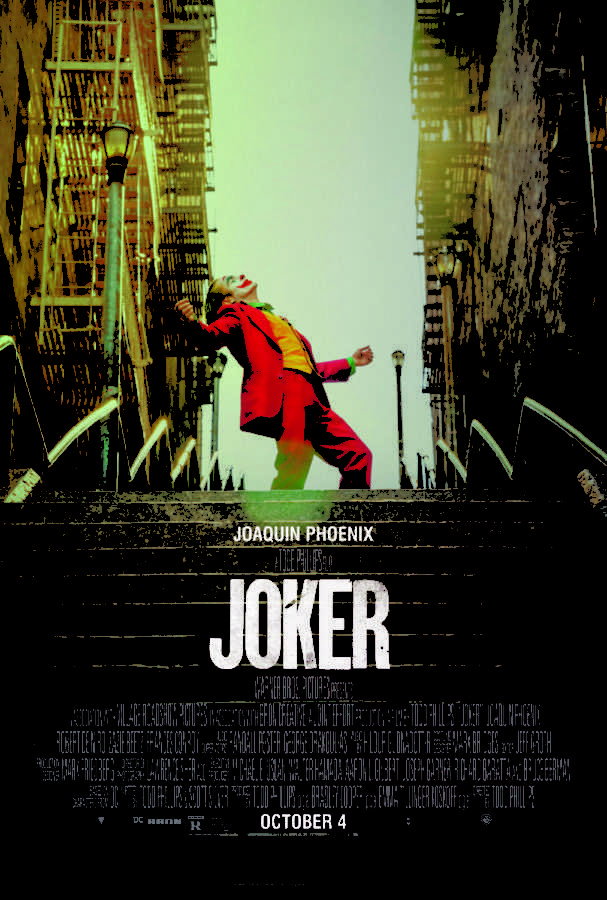Hamel: ‘Joker’ honestly communicates mental health stigma
Courtesy of Warner Bros. Pictures
Columnist Peyton Hamel argues that “Joker” effectively addresses the stigma surrounding mental health while engaging its audience with a mix of genres. Hamel believes several critic reviews, such as one from New York Times, have missed the point of the film.
October 15, 2019
When I saw that the New York Times and The Guardian were scalding the newest addition to the DC Films collection to the bone, I knew the film had to be good. Too good. It caused such an upset that hundreds of newspapers have reviewed the film on either side of the opinion spectrum: cataclysmically awful or miraculously genius. If you have not watched “Joker” yet, see the film and then get back to me. The fact that its reviews are so opinionated is enough for admission.
Joaquin Phoenix deserved a serious round of applause for acting character Arthur Fleck, along with his darker alter ego the “Joker.” To act as such an offbeat character who endures chronic mental illnesses requires a high degree of comprehension and understanding of mental illness itself, which not many have.
“Joker” beautifully addresses the negative stigma concerning mental health and how strict societal expectations and values affect those who have mental illnesses, acute or chronic, throughout the film. The backlash of this proceeding can be seen throughout the critics reviewing “Joker” who believe the film does not have “a worked-out, thought-provoking set of themes, some kind of imaginative contact with the world as we know it” (New York Times).
What some critics do not realize is this: While “Joker” relies on its superhero and Gotham background for its context, it is not a superhero fantasy.“Joker” is a social commentary film. A literary film. This film is not for critics who want the shallow satisfaction of feel-good movies we are bred to recognize from near-close Hollywood assimilation. Its fracturing of the traditional superhero fantasy genre permits Joaquin Phoenix to delve into Arthur Fleck with every inch and fiber of his movements and temper, allowing Fleck to express how his whole external conflict, from his deranged laugh to his inexhaustive imagination, reflects his internal, bloody civil war. It is supposed to break the confines of what we believe it to be. Some critics, like the Firstpost, believe this to be an incurable weakness of the film.
One major complaint concerning the film was its emphasis on mass violence and insanity. Like said before, this emphasis is strictly a metaphor for his internal condition of having a mental illness.
Once again, “Joker” and its conversation about how not only an individual deal with their mental illness, but also how society handles mental illness is effectively communicated throughout the film. It is supposed to make you uncomfortable. It is supposed to start this conversation.
Undoubtedly, no one will find Arthur Fleck to be a hero. He is incapable of keeping a job, cannot cope interpersonally or maintain personal relationships and is just downright odd. He is no hero, but in some twisted way, because the film is strictly from Fleck’s point of view, he is his own hero and he captures his audience and manipulates into advocates because he figures it out. Fleck manages to turn his mental illness into a gift for his greater good and greater purpose, even though it may not be for the greater good’s purpose.
“Joker” is one of the most honest films of the year, magically tantalizing its audience with its interactions with superhero fantasy and psychological realism while effectively producing commentary concerning mental illness.







